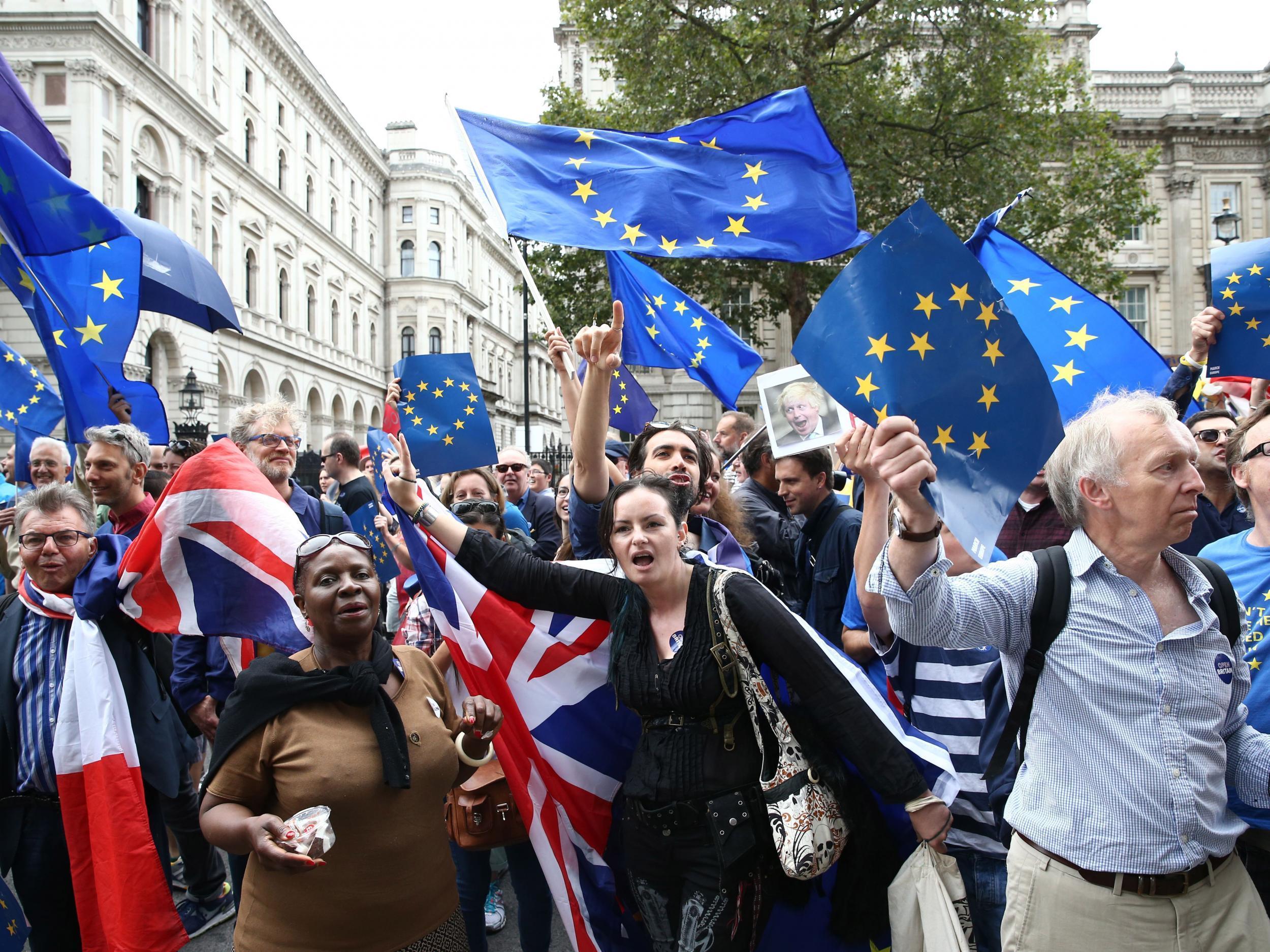Diplomat author of Article 50 says it's perfectly possible Brexit will not happen
PM could revoke Article 50 if Britain suffers a ‘serious degree of economic damage’ Lord Kerr says

Your support helps us to tell the story
From reproductive rights to climate change to Big Tech, The Independent is on the ground when the story is developing. Whether it's investigating the financials of Elon Musk's pro-Trump PAC or producing our latest documentary, 'The A Word', which shines a light on the American women fighting for reproductive rights, we know how important it is to parse out the facts from the messaging.
At such a critical moment in US history, we need reporters on the ground. Your donation allows us to keep sending journalists to speak to both sides of the story.
The Independent is trusted by Americans across the entire political spectrum. And unlike many other quality news outlets, we choose not to lock Americans out of our reporting and analysis with paywalls. We believe quality journalism should be available to everyone, paid for by those who can afford it.
Your support makes all the difference.The former UK diplomat who wrote Article 50 has said it is “perfectly possible” Brexit will not happen.
Lord Kerr said the Prime Minister could revoke Article 50 if Britain began to suffer a “serious degree of economic damage”.
He also said there is a one in three chance Brexit negotiations will end with no deal between the UK and the European Union, resulting in “serious economic disruption and a degree of legal chaos”.
The former diplomat, who negotiated European deals for both Margaret Thatcher and John Major, made the comments as he considered a number of possible outcomes for the UK following the vote to leave in 2016.
He said it was “perfectly possible” Theresa May could revoke Article 50 if “we were beginning to suffer a degree of economic damage” by the end of 2018, Buzzfeed reports.
He also said there was around a 10 per cent chance panic over the Brexit vote and other populist movements in France and the Netherlands could encourage a reform within the EU, which could persuade the UK to remain.
One scenario “is that Europe has changed by 2019,” Lord Kerr said.
“Maybe President Le Pen is demanding a new European model, maybe Brussels is in full retreat, then we could declare victory and stay – but the probability of that is very, very low.”
During a lecture at Glasgow University, he told how he is “pretty confident” the UK’s exit will not result in the break-up of the EU.
He warned that the financial negotiations about leaving would be “very nasty”.
Lord Kerr said: “Article 50 is not about trade, it is about divorce. It's about paying the bills, dividing the property. The money negotiation is going to be a very nasty negotiation.”
Going on to outline some of the possible outcomes from Brexit, Lord Kerr said there was about a 25 per cent probability the UK will leave Europe in 2019 with an agreed Article 50 financial settlement, a “substantive framework” setting out future relationships and a “degree of progress on the trade negotiations Mrs May says she wants”.
There is about the same chance the UK will leave in 2019 but with only a “thin framework and not much progress made on trade”, he said.
Another scenario is that Brexit talks could go “into extra-time”, with an extension agreed to the two-year period for Article 50 negotiations. Lord Kerr said: “The probability is very low, probably about 10 per cent.”
Another outcome he mooted was “no deal at all” with Britain and the EU in a “deadlock on money” and forced to go to the courts to try to resolve the situation.
This would mean “we leave anyway”, he said, adding: “As Article 50 says, if there is no agreement and no extension, the departing country departs.
“So, out we go into serious economic disruption and a degree of legal chaos.”
He also warned that talks with the dozens of nations the EU has trade agreements with would not be able to take place until the Brexit process has been completed, telling the audience: “We can expect, I'm afraid, a decade of delay and disruption with investment, economic growth and employment lower than they would have been.”
Additional reporting by Press Association
Join our commenting forum
Join thought-provoking conversations, follow other Independent readers and see their replies
Comments